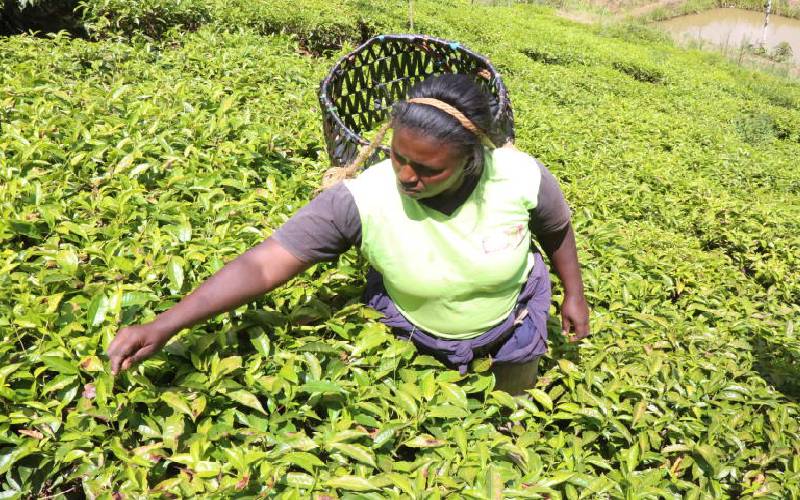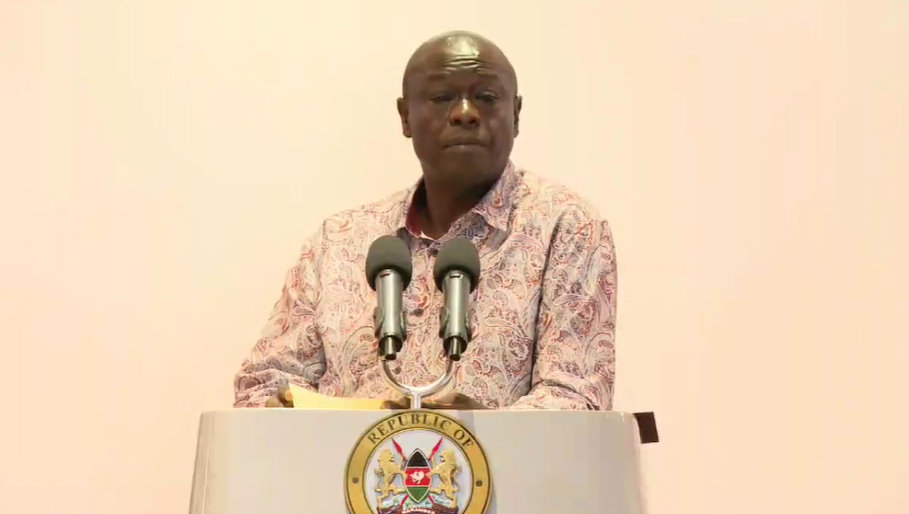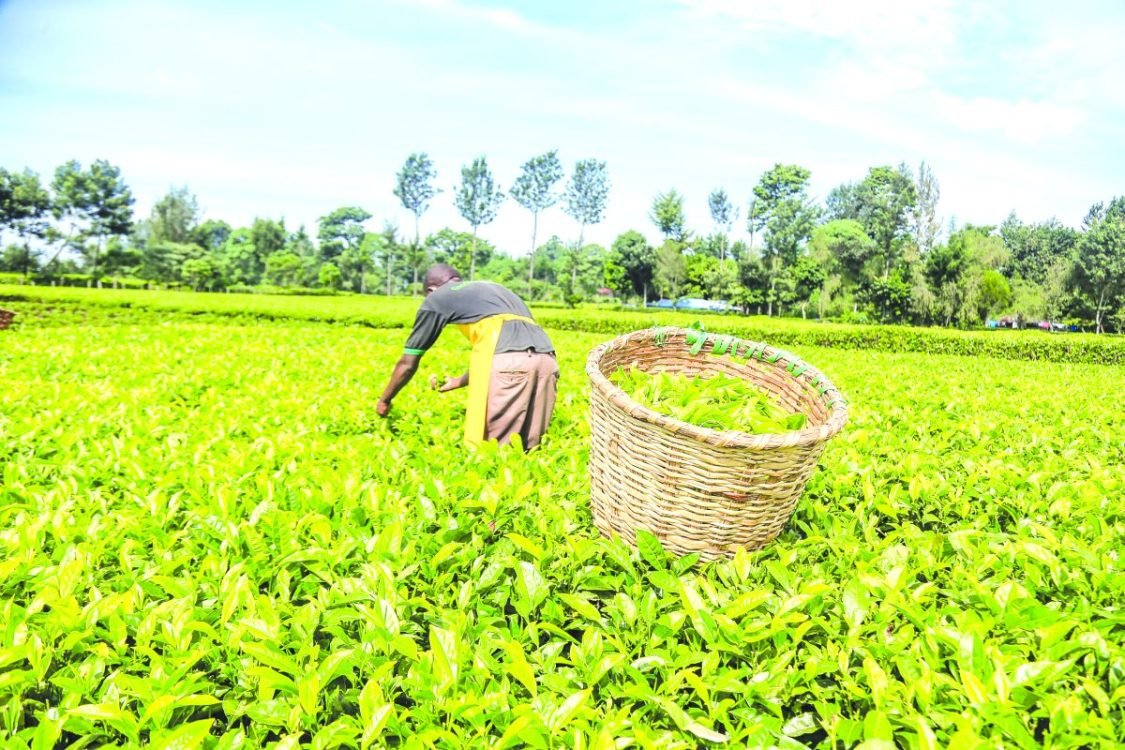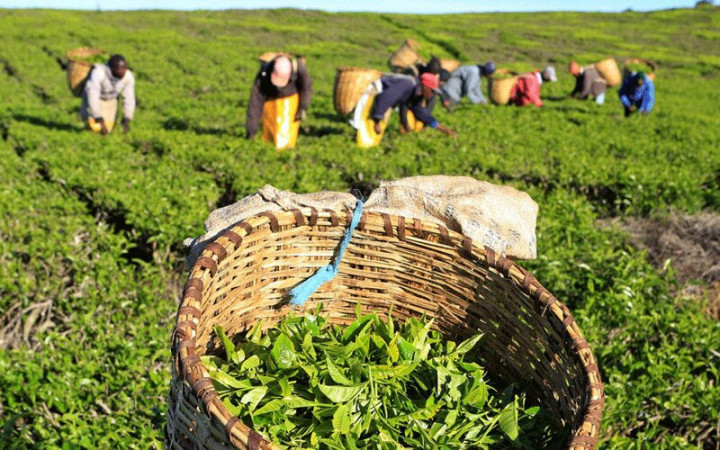Tea farmers’ earnings dip as sector grapples with oversupply

Small-scale tea farmers across the country will earn a lower bonus compared to last year as the sector grapples with oversupply in the global market.
Farmers affiliated to factories managed by Kenya Tea Development Agency (KTDA) earned Sh69.77 billion for the year ended June 2019 compared to Sh85.74 billion earned last year, which represents 18 per cent or Sh17.97 billion dip.
The earning represents an average return of 67 per cent of the total tea revenue, with farmers receiving an average of Sh41.27 per kilo of green leaf delivered.
“Out of the Sh69.77 billion revenue, farmers earned Sh46.45 billion being the sum total of Sh17.69 billion in the initial monthly payments and Sh28.76 billion as second and final payment, which is referred to as bonus, KTDA chief executive Lerionka Tiampati said yesterday when he released the results.
Last year, farmers earned a Sh44.33 billion bonus. He attributed the drop in earnings to currency devaluation in export destinations, overproduction and poor tea quality. “Pakistan, Egypt, UK, UAE and Sudan remain Kenya’s key export destinations for the black CTC tea type but have had significant currency devaluation because of political /economic challenges,” Tiampati said.
Economic sanctions
During the production year ended June, factories processed 1.13 billion kg of green leaf into 262 million kilos of made black tea, which was sold at an average price of Sh259 compared to Sh314 in the previous year.
Tiampati said Sudan and Pakistan registered 70 and 50 per cent drop respectively while Egypt and UK registered a 20 per cent. He added resumption of economic sanctions by the US on Iran cut off a substantial market for Kenya teas.
News of low bonus payout filtering out ahead of the official announcement yesterday had rattled farmers across the country.
In Kirinyaga, there has been massive uprooting of tea bushes as they protested the low bonus. Farmers said they had lost confidence with the cash crop because of dwindling income.
“We have no option but to uproot tea and replace it with more profitable crops such as avocado or macadamia,” said Kennedy Njeru. He said many tea factories announced an average of Sh30 bonus, which he said, was too little compared to workload associated with the crop’s farming.
In Bomet, Laban Rotich, who led other farmers in uprooting tea bushes said: “It is unfortunate that we have to uproot the crop after 15 years. We have never experienced such low prices, we appeal to Agriculture Cabinet secretary Mwangi Kiunjuri to intervene.”
He said their local factory, Kapkoros Tea Company, had offered Sh18 per kg in bonus compared to Sh34 offered last year.
As farmers protested low payout, MPs in tea growing areas called for the overhaul of KTDA to streamline its operations.
Lawmakers say among the issues they want to address will be reducing the chain of brokers whom they said eat a huge share of farmers’ earnings.
“The richest people in the tea industry are not farmers who work hard in farms. People have amassed wealth through the sweat of farmers when majority of them are languishing in poverty because of minimised earnings,” Shadrack Mose, Kitutu Masaba MP, said on Tuesday.
Yesterday, Tiampati laughed off the call to overhaul KTDA terming it a private entity owned by farmers who are shareholders in the factories.
“I do not see how legislators can call for overhaul of KTDA. This can only be effected by shareholders through laid procedure or through changes in policies which should not only target KTDA but the whole tea sector,” he said.
This year Muranga county 72,694 farmers topped earnings raking in Sh12.3 billion having produced 43.8 million kilos. Bomet county was second with 81,695 growers earning Sh9.6 billion after producing 42.6 million kilos. The third top performer was Meru county that fetched Sh8.3 billion with a production of 29.5 million kgs.
The three lowest earning counties were Trans Nzoia (Sh352 million), Vihiga/Kakamega (Sh828 million) and Tharaka Nithi (Sh1.2 billion).
Tiampati expressed concern that over dependency on international market was a challenge indicating that the country export 96 per cent of its tea.
Quality tea
East Africa Tea Trade Association (EATTA) managing director Edward Mudibo said the drop in prices by almost $2 is the lowest since 2014 but hope things will get better by 2020.
“We are encouraging farmers to continue producing more quality tea as market prospects are promising,” said Mudibo. According to the EATTA market report, tea prices had been on an upward trend in the last five years before a sharp decline hit the market.
Tiampati added that demographic trends and customers’ tastes and preferences shows younger generation shun black CTC for flavoured and herbal infusions.
He said to address changing market tastes, KTDA had introduced flavoured tea to attract the youths and ventured into orthodox tea to capture larger market.













